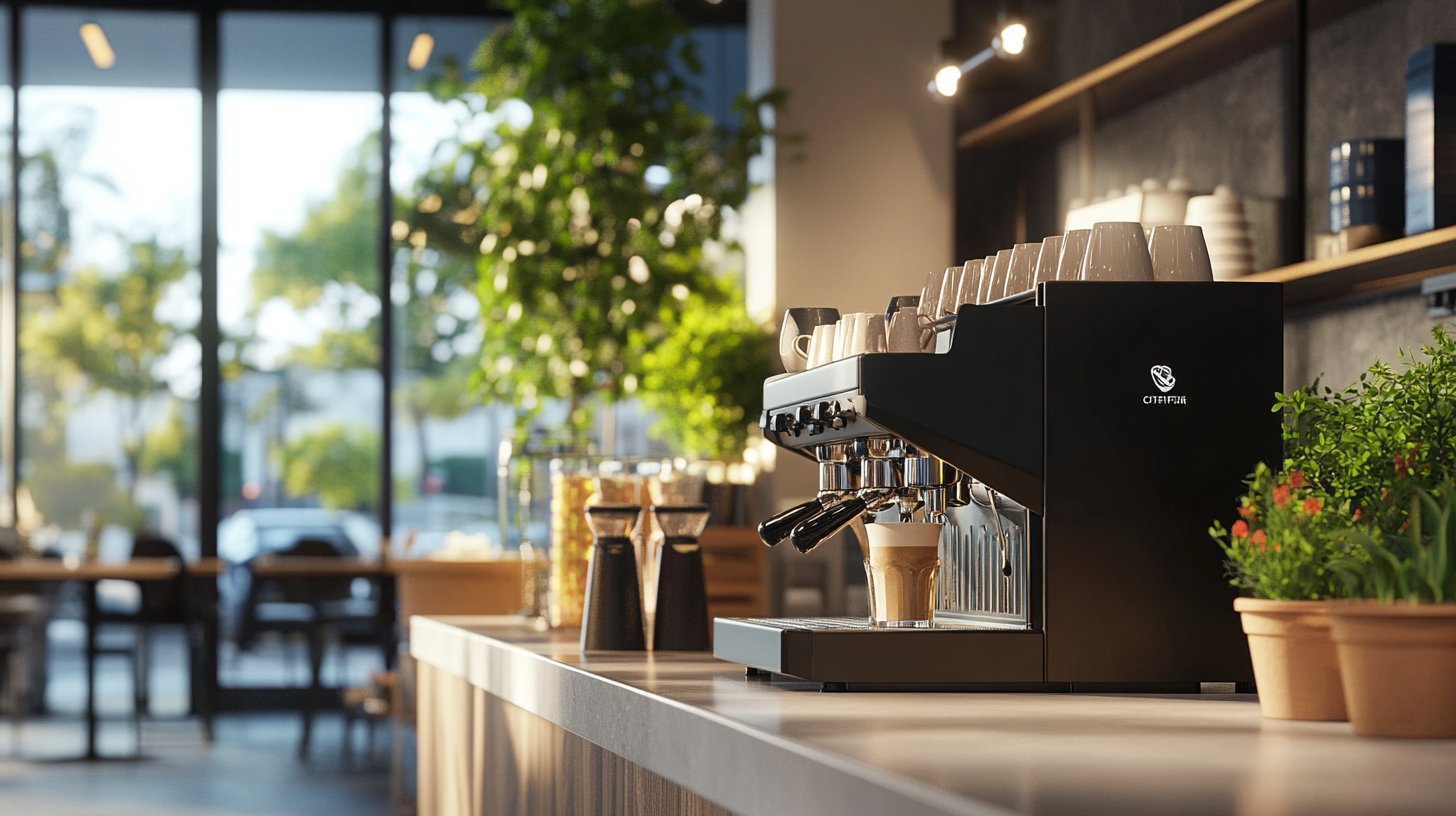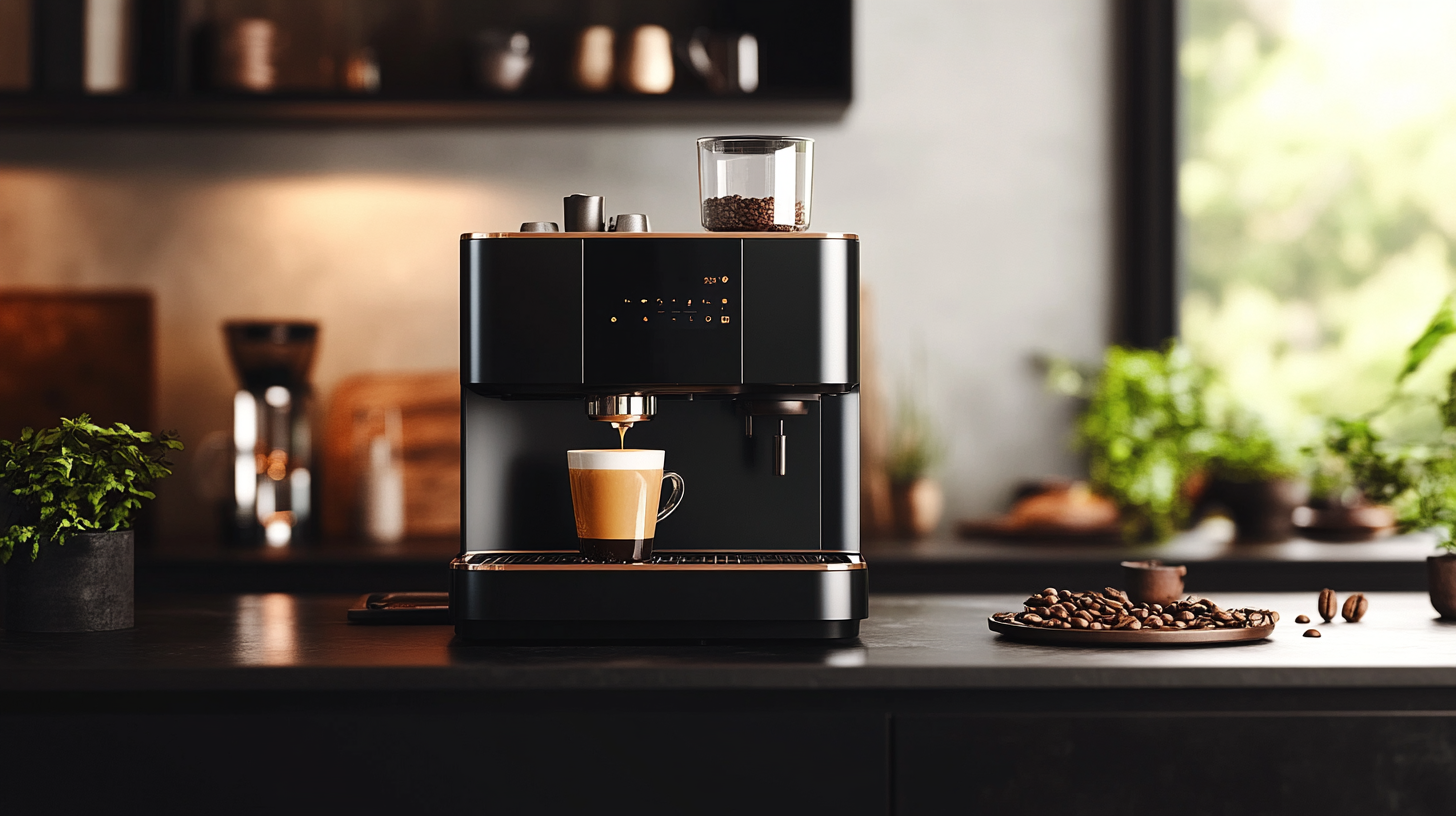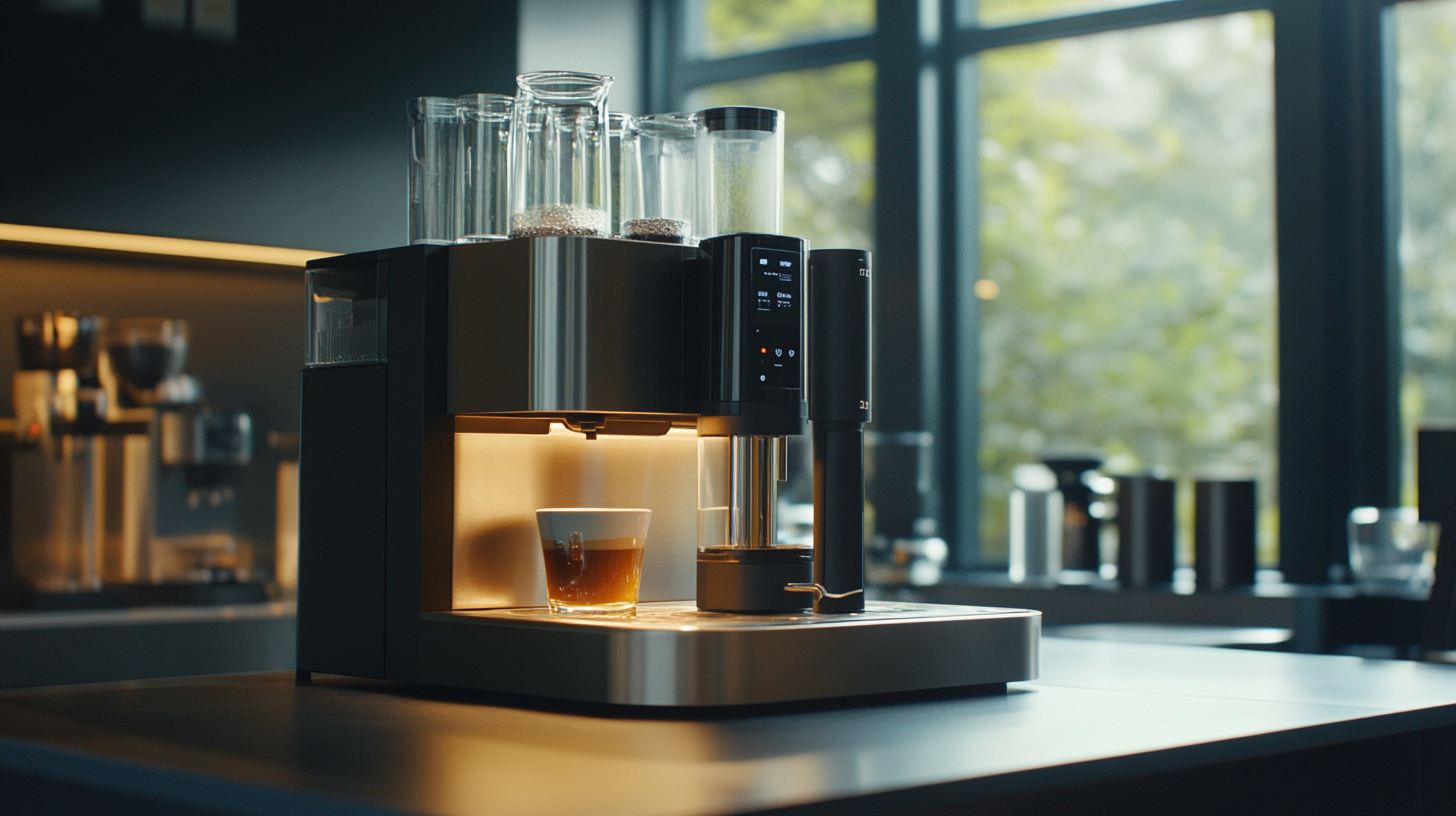Exploring Effective Strategies for Coffee Machine Leasing in Global Markets
In today's competitive landscape, businesses are continually seeking innovative ways to optimize their operations and enhance customer satisfaction. One such strategy that has gained traction is the coffee machine lease model, allowing companies to access high-quality equipment without the substantial upfront costs associated with purchasing. This approach not only alleviates financial burdens but also provides flexibility for businesses to adapt to changing demands in the global market. As coffee consumption continues to rise, understanding effective strategies for coffee machine leasing becomes imperative for entrepreneurs aiming to stay ahead in the industry.
As we delve deeper into the realm of coffee machine lease options, we will explore the various factors that influence successful leasing strategies, including market trends, cost considerations, and the importance of supplier relationships. This blog aims to provide valuable insights for businesses looking to implement or enhance their coffee leasing arrangements, ensuring they can deliver exceptional quality and service to their customers while optimizing operational efficiency. By examining these strategies, we hope to equip business owners with the knowledge necessary to make informed decisions in the ever-evolving coffee market.

Understanding the Global Demand for Coffee Machines and Leasing Solutions
The global demand for coffee machines has been on a steady rise, driven by a growing coffee culture and the increasing popularity of specialty brews. As cafes, restaurants, and offices seek to meet consumer expectations for high-quality coffee, leasing solutions for coffee machines are becoming an attractive option. This approach not only alleviates the upfront investment burden but also allows businesses to access the latest technology without the hassle of ownership and maintenance. Understanding the various regional markets is crucial for tailoring leasing strategies effectively. In some areas, such as Europe, consumers gravitate towards eco-friendly machines that align with sustainable practices. Meanwhile, in emerging markets, affordability and accessibility often dictate leasing agreements. Companies must adapt their offerings to cater to these diverse preferences, allowing them to capture a broader audience while fostering long-term customer relationships. Moreover, the rise in remote work has led to an increase in demand for in-home coffee solutions, further expanding the scope for leasing options. With individuals seeking to create café-level experiences at home, leasing provides a viable pathway for consumers to enjoy premium machines without a hefty price tag. By leveraging this trend, businesses can not only enhance their product visibility but also drive customer loyalty through flexible and customer-centric leasing plans.

Key Benefits of Leasing Coffee Machines for Businesses in Competitive Markets
Leasing coffee machines has become an increasingly popular strategy for businesses operating in competitive markets. One of the primary benefits of leasing over buying is the significant financial flexibility it offers. Businesses can avoid hefty upfront costs, enabling them to allocate resources more strategically across other vital areas of operation. This is particularly advantageous for startups and small to medium-sized enterprises that may have limited capital but still wish to provide high-quality coffee to their customers.
Another key advantage of leasing coffee machines is the access to the latest technology and equipment. In a fast-evolving market, staying ahead of the competition often requires employing cutting-edge machines that enhance beverage quality and customer experience. Leasing arrangements typically include options for upgrades, allowing businesses to regularly refresh their equipment without the burden of selling outdated machines. This ensures that they can consistently meet evolving customer preferences and demand for innovative coffee options.
Lastly, leasing often comes with added benefits such as maintenance and support services, enabling businesses to focus more on their core operations rather than worrying about equipment issues. This comprehensive approach not only enhances operational efficiency but also promotes a seamless customer experience, ultimately leading to increased customer loyalty and sales. By considering these advantages, businesses can leverage coffee machine leasing as a strategic tool to thrive in competitive global markets.

Navigating Regulatory Challenges in Coffee Machine Leasing Across Borders
In the rapidly evolving landscape of global markets, coffee machine leasing has emerged as a strategic avenue for businesses looking to optimize costs while enhancing their service offerings. However, navigating regulatory challenges across borders remains a critical hurdle for many operators. According to recent studies, globalization has significantly impacted small and medium-sized enterprises (SMEs), introducing both opportunities for growth and complexities related to compliance with diverse regulatory frameworks.
Different countries impose varying regulations concerning equipment leasing, which can complicate operations for firms seeking to expand internationally. For instance, a report by the International Trade Centre highlights that 75% of SMEs face challenges in complying with foreign leasing laws, which can differ substantially across regions. This situation necessitates a thorough understanding of both local and international leasing regulations, as well as strategic partnerships with local entities that can provide insights and facilitate compliance.
Moreover, the globalization of supply chains has created a demand for standardized practices in equipment leasing. A study indicates that firms that adopt a unified approach to compliance tend to experience a 30% reduction in operational delays related to regulatory issues. By developing robust frameworks to navigate these complexities, businesses can leverage the advantages of coffee machine leasing, such as flexibility and reduced capital expenditure, while ensuring adherence to pertinent regulations, thereby gaining a competitive edge in the global marketplace.

Comparative Analysis: Leasing vs. Buying Coffee Machines in Global Markets
When considering the decision to lease or buy coffee machines, the comparative analysis reveals critical insights into market dynamics. The global coffee machines market, valued at USD 6.6 billion in 2023, is poised for significant growth, projected to increase at a compound annual growth rate (CAGR) exceeding 5.5% from 2024 to 2032. This trend indicates a robust demand for coffee machines, which poses valuable opportunities for both leasing and purchasing strategies.
Leasing coffee machines allows businesses to maintain flexibility and reduce upfront costs, which is increasingly important in a market focused on sustainable practices. With the expected growth of coffee capsules reaching more than $29 billion by 2025, considerations around waste management and efficiency are becoming paramount. Companies looking to adapt to environmental concerns may find leasing options, which often include maintenance and upgrade provisions, more favorable than traditional purchasing routes.
Moreover, the Thailand Industry Outlook for 2024-2026 underscores emerging market opportunities. Businesses in Thailand and similar markets may benefit from leasing schemes that enable access to the latest technology without the commitment of ownership. This approach can be particularly advantageous in rapidly evolving markets where consumer preferences shift towards convenience and quality—factors increasingly integral to the coffee consumption experience.
Implementing Sustainable Practices in Coffee Machine Leasing Strategies
Implementing sustainable practices in coffee machine leasing strategies is crucial for businesses aiming to thrive in today's environmentally conscious market. According to a recent report by MarketsandMarkets, the global coffee machine market is projected to reach $6.5 billion by 2025, growing at a CAGR of 6.3%. As the demand for sustainable solutions increases, companies must consider eco-friendly leasing practices to remain competitive.
One effective strategy for promoting sustainability is adopting energy-efficient coffee machines. The Energy Star program estimates that energy-efficient appliances can save business owners up to 50% on operating costs. By leasing these machines, companies can offer clients the opportunity to minimize their carbon footprint while enjoying lower utility bills. Furthermore, integrating smart technology into coffee machines allows for real-time monitoring of energy consumption, enabling businesses to adjust usage patterns and improve efficiency.
Another critical approach is to establish recycling and refurbishment programs within the leasing model. According to the World Economic Forum, the circular economy could generate $4.5 trillion of additional economic output by 2030. By prioritizing the recycling of old machines and refurbishing them for leasing, companies can significantly reduce waste and extend product life cycles. This not only aligns with customers’ sustainability goals but also creates new revenue streams while promoting responsible consumption practices.
By implementing these sustainable practices in coffee machine leasing strategies, companies can position themselves as leaders in an increasingly eco-conscious market, attracting clients who prioritize sustainability alongside quality service.

